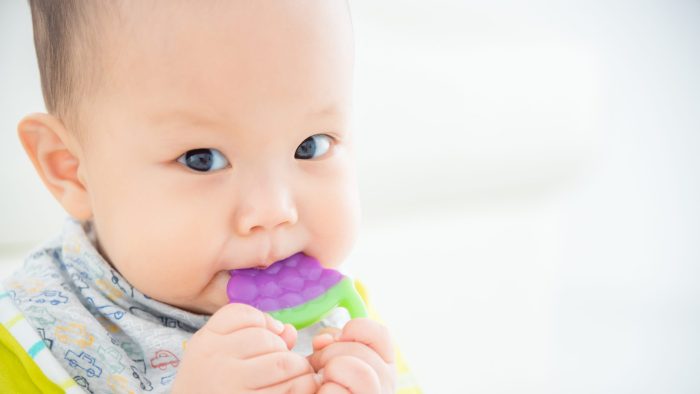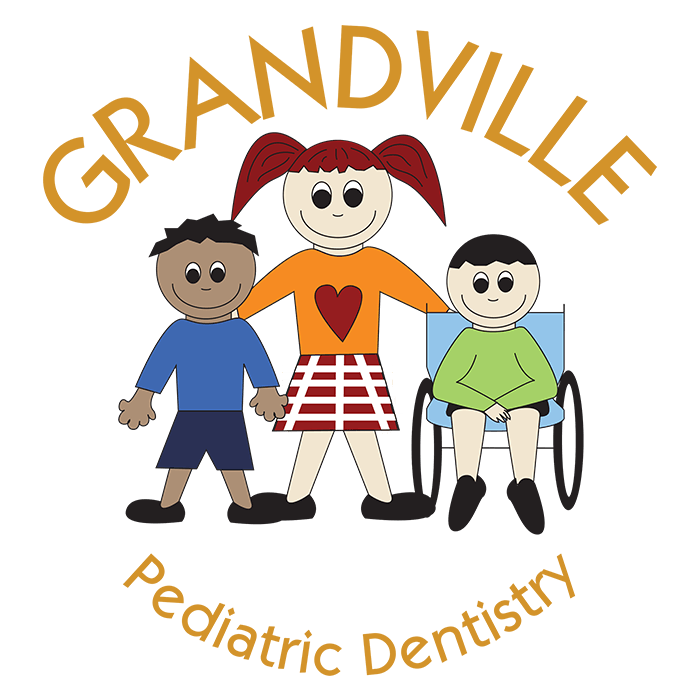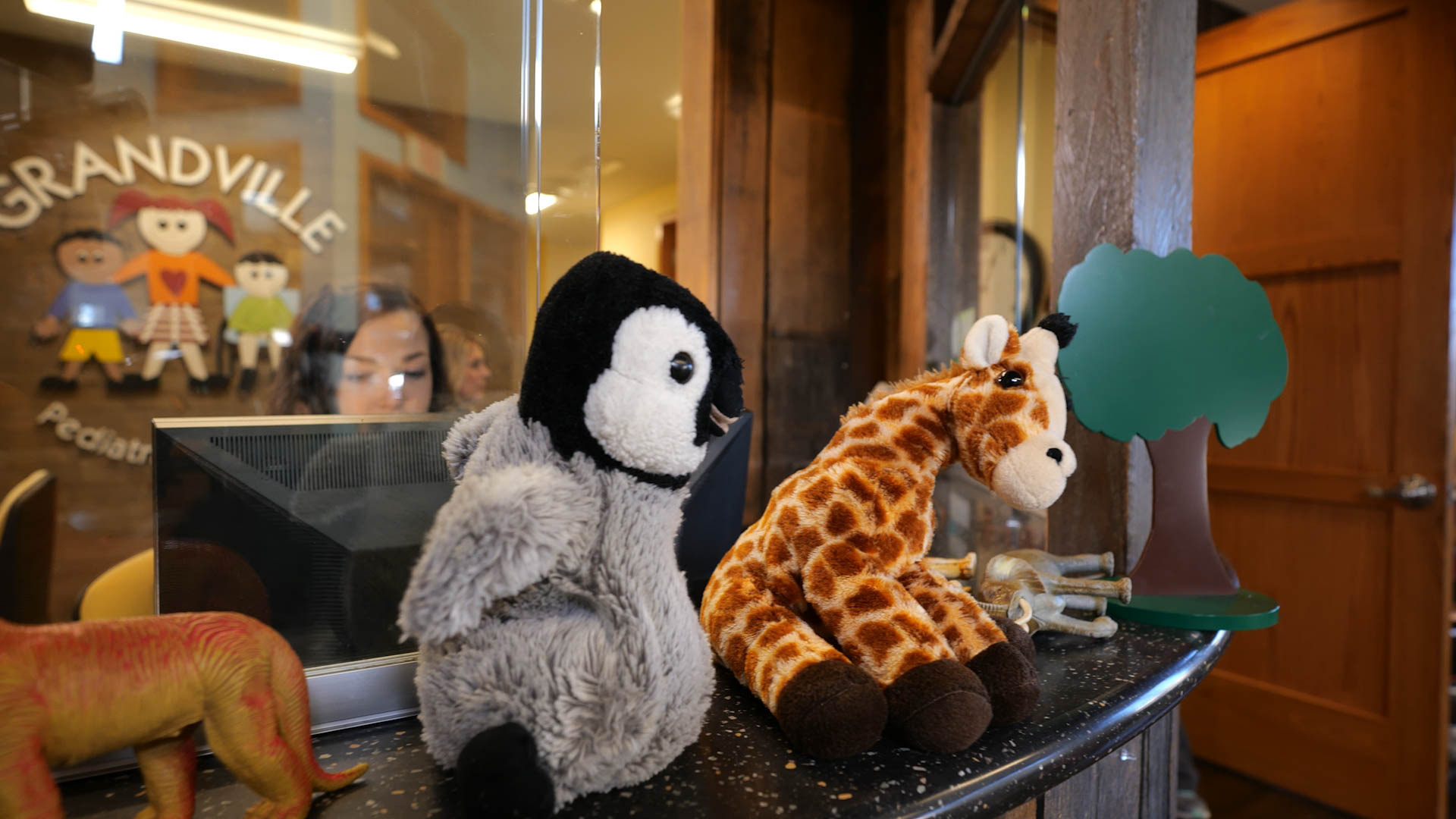What Are the First Signs of Teething?

Babies grow and develop faster than you want them to sometimes. One day you’re bringing them home for the first time and the next they’re crawling everywhere. But how do you know when they’re ? Our Grandville pediatric dentists are well-versed in the signs parents should look out for and have advice for keeping your baby’s growing smile healthy.
Here’s what you need to know about the teething process and how to spot when your child is going through dental changes.
When Teething Happens
You’ve heard it before but it’s important to remember: every baby is different. What’s considered “normal” can vary and this applies to many things, including teething. The onset of teething only begins when your is in the process of erupting.
Read More → Are Baby Teeth Really That Important?
Some babies have a tooth appear around 6 months of age while others make it to their first birthday without a visible addition to their smile. However, on average, most babies start teething between 4 and 7 months. during this time can be more intense or nonexistent depending on your child.
As your child’s primary teeth start to emerge, our pediatric dentists recommend that you bring them in for an infant dental exam. This way we can gently examine their mouth and make sure there are no immediate causes for concern. We can also offer tips for soothing sore gums, how to brush before teeth, and when it’s time to teach oral hygiene habits.
Your Baby Might Be Teething if They:
1. Cry and Act Irritable
Mood changes can signal that your baby is entering the teething phase. Crying may happen more frequently, and it might not take much to set even the happiest baby off. Don’t worry, however, as it’s not permanent. If your baby is feeling regularly agitated it’s likely because a new tooth is pressing on and poking its way through their gums.
Their first teeth will be the most painful but as time goes on, they’ll become accustomed to what teething feels like. For upset babies, our pediatric dentists encourage parents to place something cold in your child’s mouth, i.e., a cold pacifier, spoon, or teething ring. The lower temperature will help to ease their tender gums.
2. Drool Excessively
Babies drool quite a bit already, but when they start teething, it’s not uncommon for the drooling to increase. If you notice your baby’s shirt becoming drenched rather quickly, teething is often the culprit. Try having your child wear a bib to keep their clothes dry for longer and be sure to wipe or pat away drool so it doesn’t cause a rash on their skin.
3. Pull at Their Ear(s) or Rub Their Cheeks
As new primary teeth push through the gums, discomfort and pain can radiate to nearby areas, such as the cheeks and ears, especially when molars are involved. This can lead babies to instinctively pull or rub these areas in an attempt to soothe the discomfort. However, it’s important for parents to be aware that these behaviors could also indicate an ear infection, particularly if they are accompanied by other symptoms like a high fever.
If the ear pulling or cheek rubbing persists or is coupled with a fever, it’s wise to contact your pediatrician to rule out an infection. In the meantime, parents can help ease their baby’s teething pain by gently rubbing or massaging the gums with a clean finger for a few minutes. This can provide temporary relief and comfort during the teething process.
4. Need to Bite or Chew
When there is pressure from a tooth poking through under the gums, chewing or biting down on something can feel good. This is what your baby is trying to do if they’re teething and why teething rings or other toys are so effective.
Our pediatric dentists recommend giving your child something safe to chew on like bumpy rubber teething toys or a wet washcloth. Using a silicone finger slip toothbrush can also help to apply counter pressure and massage the gums.
5. Have Swollen or Tender Gums
This is expected during teething and what babies will fuss the most about as their teeth erupt. Simply running a clean finger along your child’s irritated gums can provide them with much needed comfort and relief. Though it is tempting as a relaxation technique, try not to let your child have a bottle as they fall asleep or you risk what’s known as baby bottle tooth decay.
6. Feel Slightly Warmer
Just to be clear: any temperature over 100 or 101 degrees Fahrenheit is likely not the sole result of teething. If your baby has a high fever, our pediatric dentists urge you to take them to a physician for further evaluation and care.
However, if their temperature is slightly raised and they are also exhibiting a few of the signs listed above, teething is probably the cause.
Practice Oral Hygiene From the Start
Teething can be rough for some babies but thankfully, their discomfort will ease up with time. As your child’s primary teeth come in, our pediatric dentists in Grandville, MI, recommend they visit our dental office for a teeth cleaning every 6 months. Call Grandville Pediatric Dentistry today at (616) 531-3430 to request an appointment.
This blog post has been updated.

